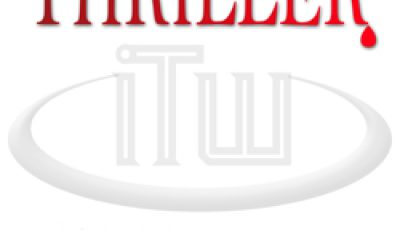

May 13 – 19: “What are your favorite examples of thrillers that question conventional wisdom or the status quo?”
 This week we join ITW Members L.A. Starks and J. H. Bográn to answer the question: “What are your favorite examples of thrillers that question conventional wisdom or the status quo?” You won’t want to miss this!
This week we join ITW Members L.A. Starks and J. H. Bográn to answer the question: “What are your favorite examples of thrillers that question conventional wisdom or the status quo?” You won’t want to miss this!
~~~~~
 L. A. Starks was born in Massachusetts, grew up in Oklahoma, and lives in Texas. She earned an engineering bachelor’s from Tulane and an MBA from the University of Chicago. Working for energy companies prepared her to write thrillers. Strike Price, published by L&L Dreamspell, is her second. Her first, 13 Days: The Pythagoras Conspiracy, received five-star reviews. Starks consults on energy economics, is on the Dallas Public Library volunteer board, and has run seven half-marathons.
L. A. Starks was born in Massachusetts, grew up in Oklahoma, and lives in Texas. She earned an engineering bachelor’s from Tulane and an MBA from the University of Chicago. Working for energy companies prepared her to write thrillers. Strike Price, published by L&L Dreamspell, is her second. Her first, 13 Days: The Pythagoras Conspiracy, received five-star reviews. Starks consults on energy economics, is on the Dallas Public Library volunteer board, and has run seven half-marathons.
 J. H. Bográn, born and raised in Honduras, is the son of a journalist. He ironically prefers to write fiction rather than fact. José’s genre of choice is thrillers, but he likes to throw in a twist of romance into the mix. His works include novels and short stories in both English and Spanish. He’s a member of the International Thriller Writers where he also serves as the Thriller Roundtable Coordinator. You can find him on Twitter @JHBogran, Facebook and Blogger.
J. H. Bográn, born and raised in Honduras, is the son of a journalist. He ironically prefers to write fiction rather than fact. José’s genre of choice is thrillers, but he likes to throw in a twist of romance into the mix. His works include novels and short stories in both English and Spanish. He’s a member of the International Thriller Writers where he also serves as the Thriller Roundtable Coordinator. You can find him on Twitter @JHBogran, Facebook and Blogger.
- LAST GIRL MISSING with K.L. Murphy - July 25, 2024
- CHILD OF DUST with Yigal Zur - July 25, 2024
- THE RAVENWOOD CONSPIRACY with Michael Siverling - July 19, 2024
